On Thursday, May 30, the traditional day for the feast of Corpus Domini, in some quarters, Corpus Christi, four members of the Eastern Lieutenancy of the Equestrian Order of the Holy Sepulchre of Jerusalem met at the Georgetown Oratory in Redding, CT, for a solemn Mass and procession for Corpus Domini. It was a beautiful Mass: sacred music, preaching, ars celebrandi, servers and the faithful.
The Order of the Holy Sepulchre of Jerusalem assembled as possible to give witness to the reality of the Eucharistic Lord, his friendship with us and our friendship with each other. The witness to our salvation is Eucharistic and crucial to our living faith today as it demonstrates what we hold to be true and what we hold to be real.
The principal celebrant and homilist Father Michael Clark preached using one of Flannery O’Connor‘s reflections on the Eucharist, where she responds to a friend claiming to be a Catholic and that the Eucharist was a “pretty good symbol.” O’Connor said, “If it’s just a symbol, to hell with it.”
This sentiment remains today among many Catholics: the Eucharist is a pretty good symbol. Well, I should say O’Connor’s response remains clear and correct. Reduction of the Eucharist to an aesthetic or worse, to ethics, makes the Eucharist a mere subjective experience renouncing the objectivity of what Jesus did on Holy Thursday, and what the churches have taught based on experience and the reality of revelation and Tradition. Symbolic presence alone is weak and irritating.
We were also reminded that O’Connor was a communicant of this Georgetown Oratory for a brief period in her life.
The picture has Charles, Ruth and PAZ. Missing was Oratorian Brother Paul. A few more members of the Order of the Holy Sepulchre were slated to be there but circumstances of life changed their plans.
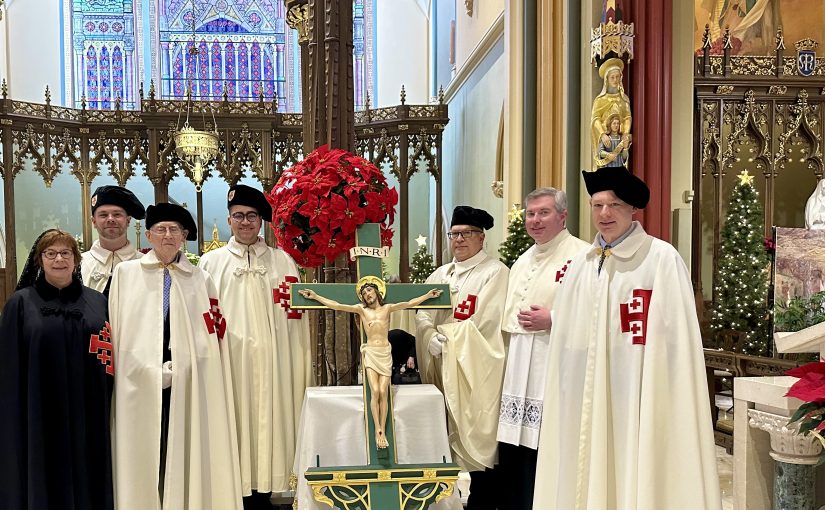
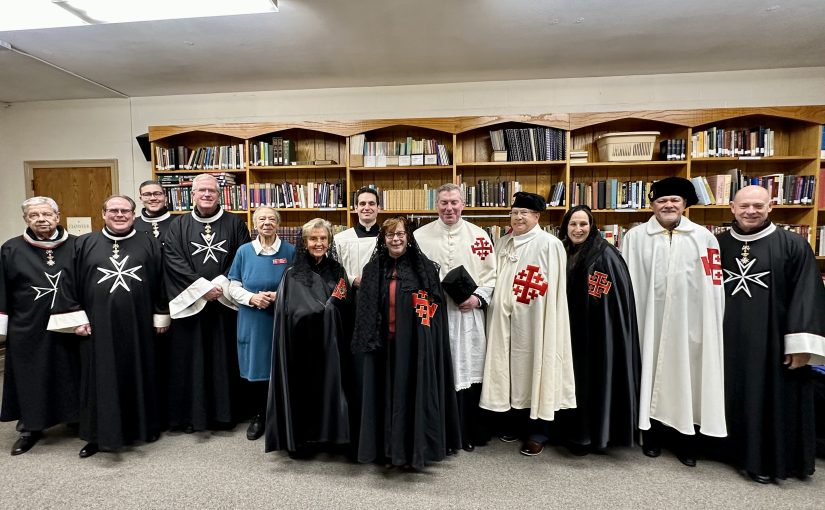
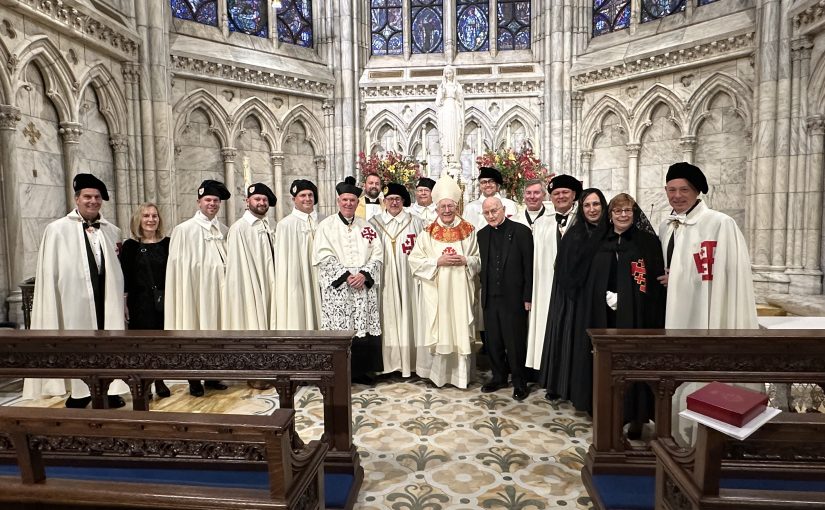
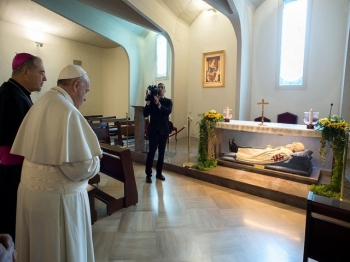
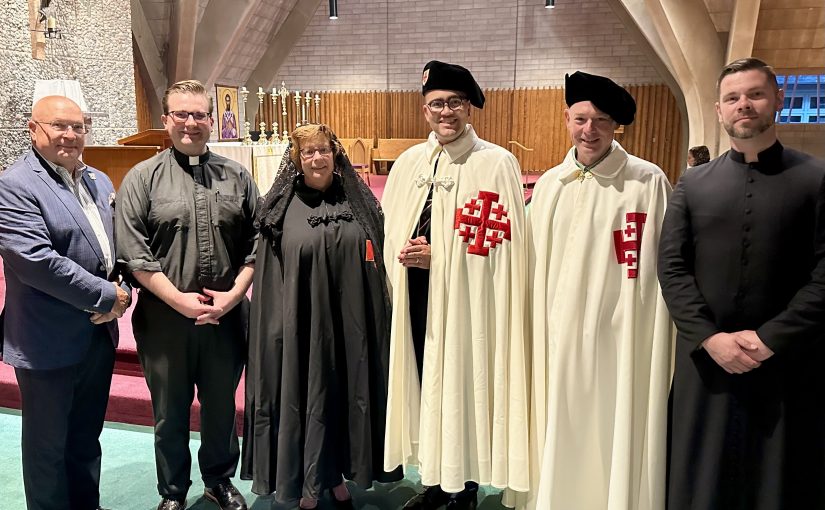
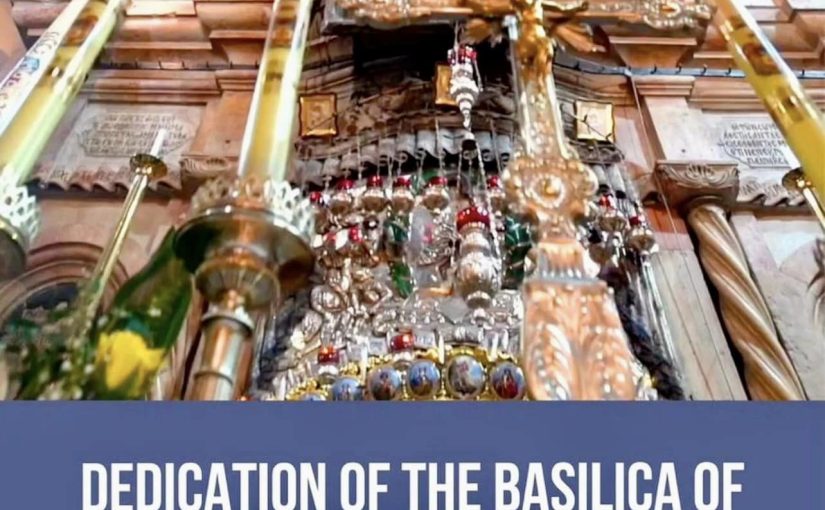
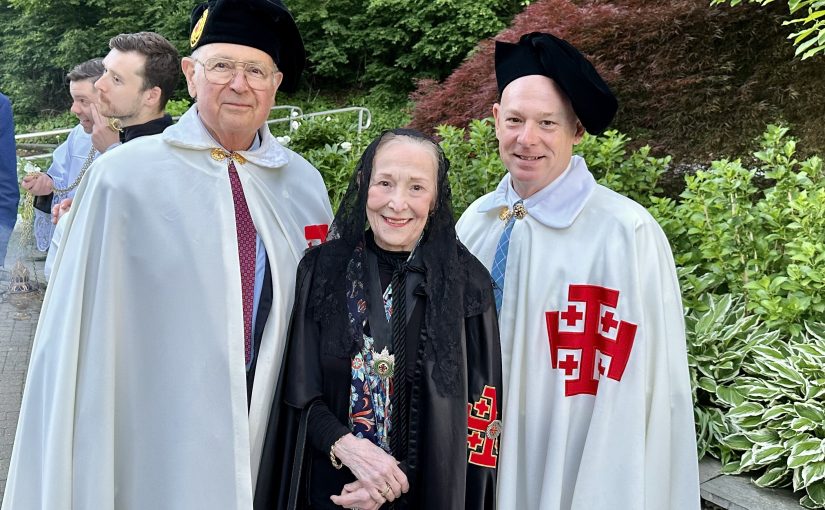
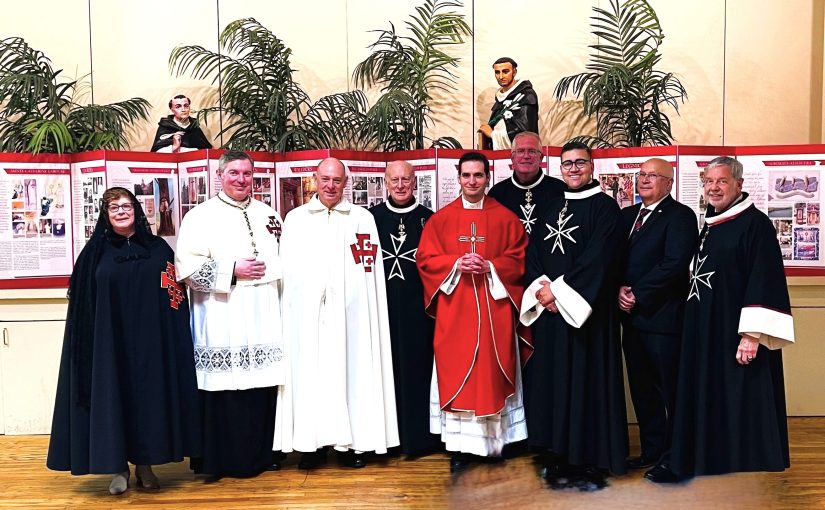
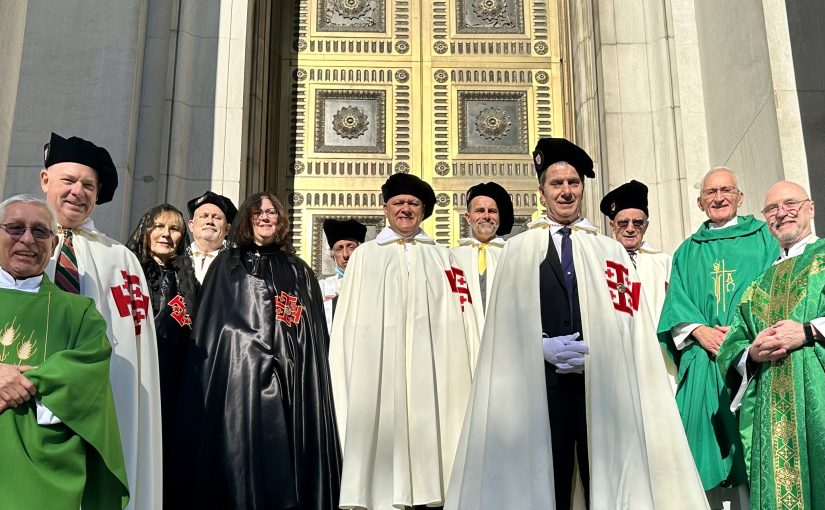

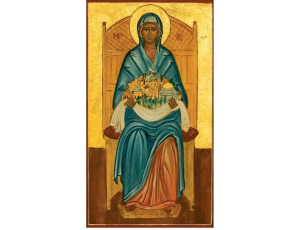 Today is a solemn feast for those of us who are members of the Order of the Holy Sepulchre of Jerusalem, and for the Latin Patriarchate of Jerusalem. Today is a perfect day to pray for peace in the Holy Land through Mary’s intercession. Prayers for the ministry of the Order of the Holy Sepulchre throughout the world.
Today is a solemn feast for those of us who are members of the Order of the Holy Sepulchre of Jerusalem, and for the Latin Patriarchate of Jerusalem. Today is a perfect day to pray for peace in the Holy Land through Mary’s intercession. Prayers for the ministry of the Order of the Holy Sepulchre throughout the world.